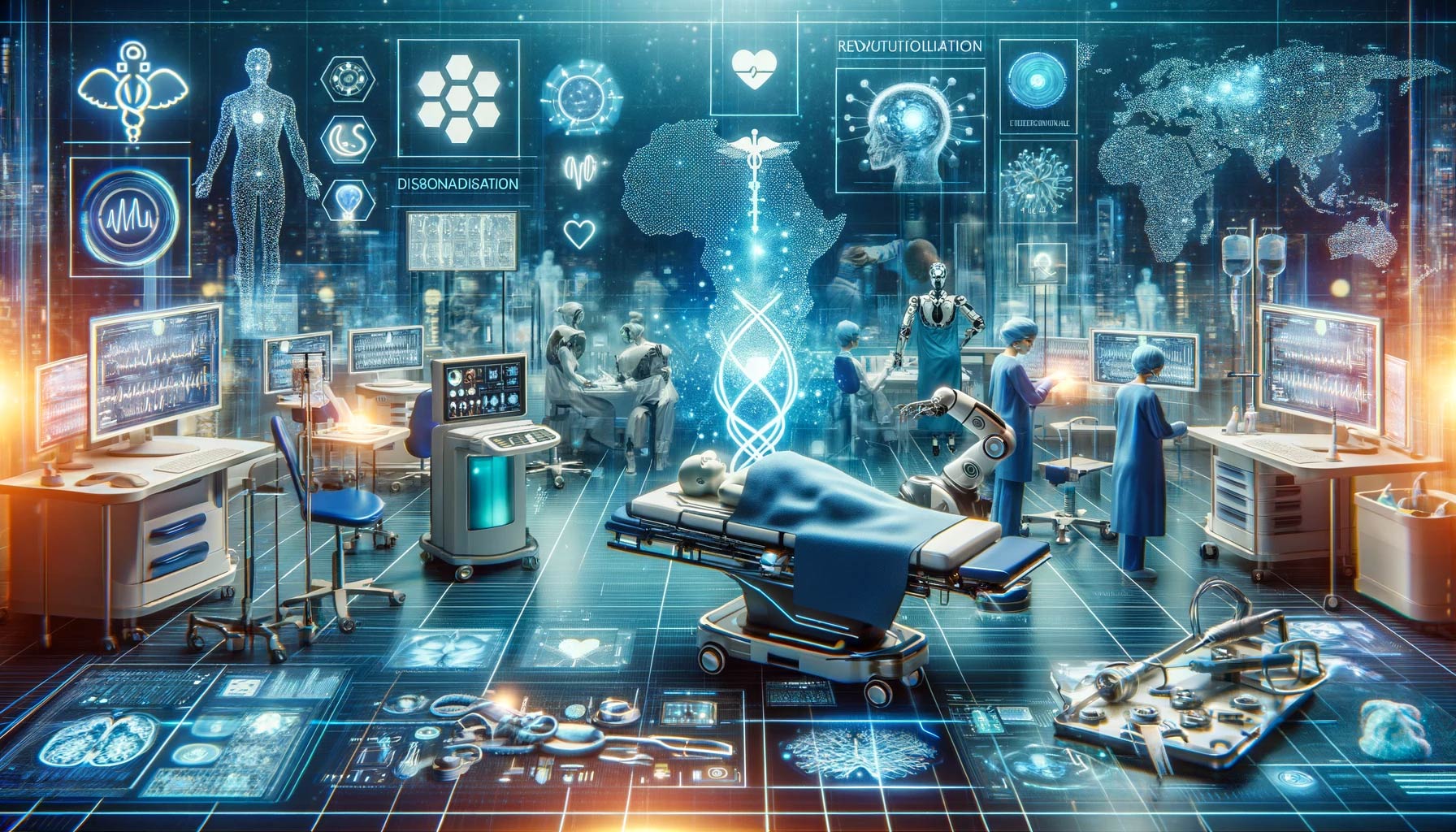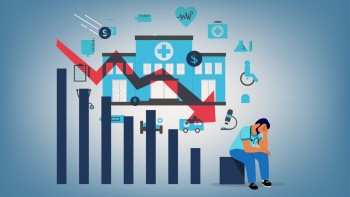Introduction
In the ever-evolving world of healthcare, Artificial Intelligence (AI) has emerged as a pivotal force, significantly enhancing the landscape of medical diagnostics and treatment. This article delves deep into how AI is revolutionizing various aspects of healthcare, from imaging techniques to predictive diagnostics, and early disease detection.
AI in Healthcare: A Game Changer
AI's integration into healthcare is transforming the industry, offering unprecedented accuracy and efficiency. By leveraging AI, medical professionals can now access more precise diagnostics, tailored treatments, and proactive healthcare strategies.
Enhancing Imaging Techniques with AI
AI's Role in Radiology
Radiology has significantly benefited from AI, particularly in improving the accuracy and speed of image analysis. AI algorithms can detect nuances in imaging that might be overlooked by the human eye, leading to more accurate diagnoses.
Improving Accuracy in Imaging
AI-powered imaging techniques have shown remarkable improvements in detecting diseases such as cancer at their early stages. This precision not only aids in better treatment but also significantly increases the chances of recovery.
Predictive Diagnostics: The AI Revolution
AI in Predicting Diseases
Predictive diagnostics, powered by AI, are enabling healthcare providers to anticipate diseases and conditions before they manifest severely. This proactive approach in medicine is a game-changer in patient care.
Personalized Patient Diagnostics
AI's ability to analyze vast datasets allows for personalized diagnostics. This tailoring of healthcare to individual patient needs ensures more effective treatments and better patient outcomes.
Early Disease Detection through AI
AI in Oncology
In the field of oncology, AI is playing a crucial role in early cancer detection. By analyzing patterns in medical data, AI can identify potential cancer signs much earlier than traditional methods.
AI in Cardiovascular Health
AI is also making significant strides in detecting cardiovascular diseases early. By analyzing heart scans and patient histories, AI can predict and prevent life-threatening heart conditions.
AI's Impact on Medical Imaging
Advancements in MRI and CT Scans
MRI and CT scans have seen substantial improvements with AI integration. AI enhances the clarity and accuracy of these scans, leading to better-informed medical decisions.
AI in Ultrasound Technology
AI is also transforming ultrasound technology, making it more accurate and efficient. This advancement is particularly significant in obstetrics and gynecology, where precise imaging is crucial.
Predictive Analytics in Healthcare
AI in Patient Outcome Prediction
AI-driven predictive analytics are being used to foresee patient outcomes. This enables healthcare providers to customize treatments based on predicted patient responses.
Reducing Medical Errors with AI
One of the most significant benefits of AI in healthcare is its ability to reduce medical errors. By providing accurate, data-driven insights, AI aids in making more informed and safer medical decisions.
AI for Preventive Medicine
Lifestyle Disease Prediction
AI's role in predicting lifestyle-related diseases is vital. By analyzing patient data, AI can forecast the likelihood of diseases such as diabetes and hypertension, prompting early intervention.
AI in Genomic Medicine
Genomic medicine is another area where AI is making a significant impact. By analyzing genetic data, AI helps in understanding disease predisposition, leading to personalized medicine approaches.
Revolutionizing Surgical Procedures
AI in Robotic Surgery
Robotic surgery, augmented with AI, is enhancing surgical precision and reducing recovery times. This combination is particularly beneficial in complex surgical procedures.
Enhancing Surgical Precision
AI assists in preoperative planning, offering surgeons various scenarios and the best surgical approaches. This not only improves surgical outcomes but also minimizes risks.
AI in Patient Care and Management
AI-Driven Patient Monitoring Systems
AI-driven systems are revolutionizing patient monitoring, offering real-time data analysis and alerts for any abnormalities. This proactive monitoring enhances patient safety and care.
AI in Emergency Response
In emergency situations, AI can be instrumental in analyzing patient data quickly, aiding in swift and accurate decision-making, which can be life-saving.
Streamlining Hospital Operations with AI
AI in Hospital Administration
The administrative aspects of healthcare, such as scheduling and resource management, are being streamlined with AI, leading to more efficient hospital operations.
Improving Patient Flow with AI
AI helps in managing patient flow within hospitals, reducing wait times, and improving overall patient experience and hospital efficiency.
Transforming Medical Training and Education
AI in Medical Simulations
Medical simulations powered by AI provide realistic training scenarios, enhancing the learning experience for medical students and professionals.
Enhancing Medical Education with AI
AI is also being used to personalize medical education, adapting learning materials to individual student needs and progress, leading to more effective training.
Ethical Considerations in AI Healthcare
Data Privacy and Security
As AI becomes more integrated into healthcare, issues of data privacy and security are paramount. It's crucial to ensure that patient data is handled with the utmost confidentiality and security.
Ensuring Ethical AI Implementation
The ethical implementation of AI in healthcare is vital. This includes ensuring transparency in AI decision-making processes and addressing any biases in AI algorithms.
The Future of AI in Medicine
Emerging Trends in AI and Healthcare
The future of AI in healthcare looks promising, with ongoing advancements leading to more sophisticated and effective healthcare solutions.
AI's Role in Future Medical Breakthroughs
AI is expected to play a critical role in future medical breakthroughs, offering new insights into diseases and their treatments, and potentially leading to cures for previously incurable conditions.
Conclusion
The integration of AI in healthcare is a monumental shift, offering enhanced diagnostics, treatment, and patient care. As we embrace this technological revolution, it's crucial to focus on ethical practices and continuous learning to fully harness the potential of AI in medicine.
FAQs
1. How is AI improving diagnostic accuracy in healthcare?
· AI algorithms enhance diagnostic accuracy by analyzing medical data and images with precision, detecting diseases earlier and more accurately than traditional methods.
2. What role does AI play in personalized medicine?
· AI analyzes patient data to tailor diagnostics and treatments to individual patient needs, leading to more effective and personalized healthcare.
3. Can AI replace human doctors?
· AI is not likely to replace human doctors but rather augment their capabilities, allowing them to focus on more complex and empathetic aspects of patient care.
4. How is AI impacting medical education and training?
· AI is transforming medical education through personalized learning experiences and realistic simulations, enhancing the training of future medical professionals.
5. What are the ethical considerations in implementing AI in healthcare?
· Ethical considerations include ensuring data privacy and security, maintaining transparency in AI decision-making, and addressing biases in AI algorithms.
6. What is the future of AI in healthcare?
· The future of AI in healthcare is promising, with potential breakthroughs in disease treatment and management, leading to more efficient, effective, and personalized healthcare.












Recent comments
Latest Comments section by users